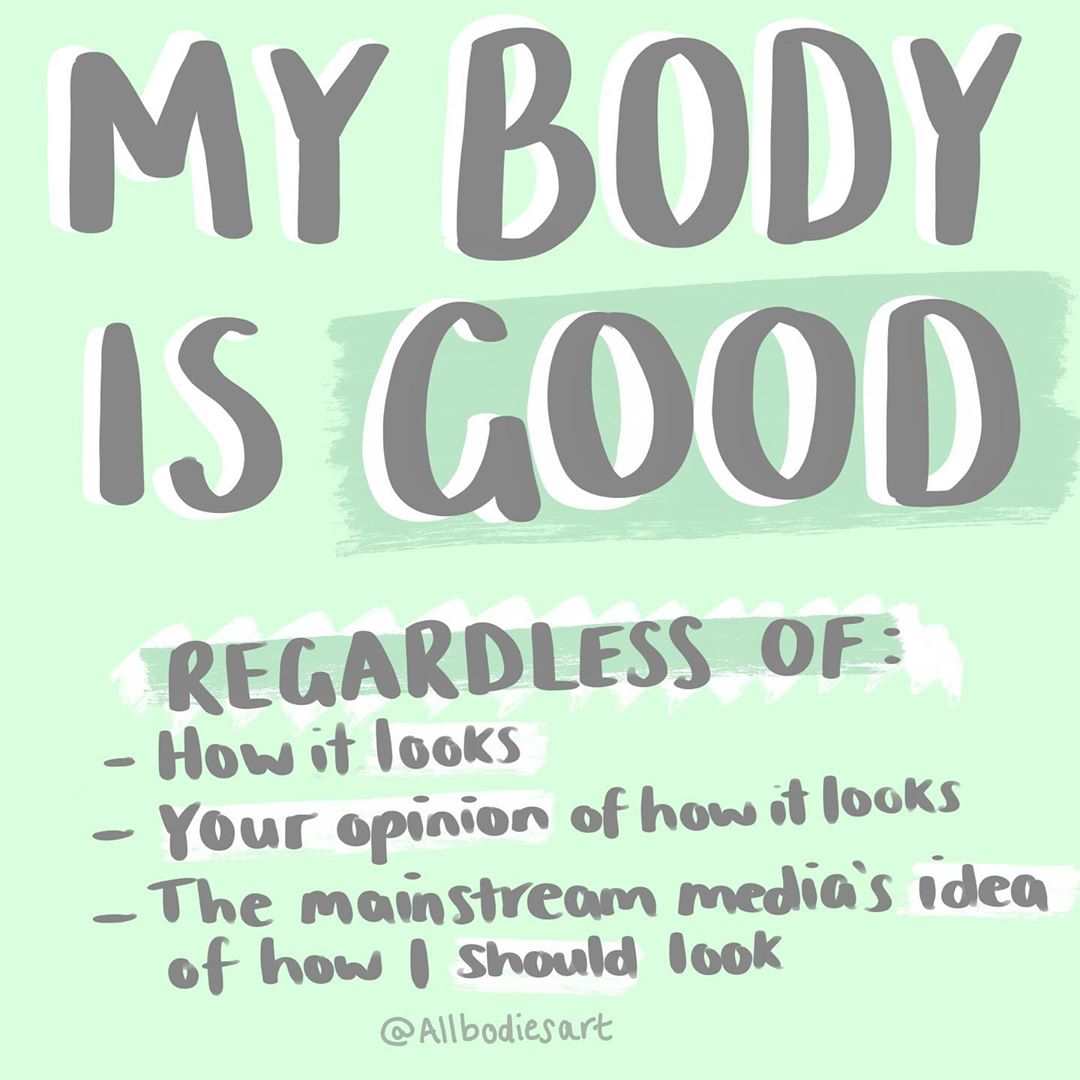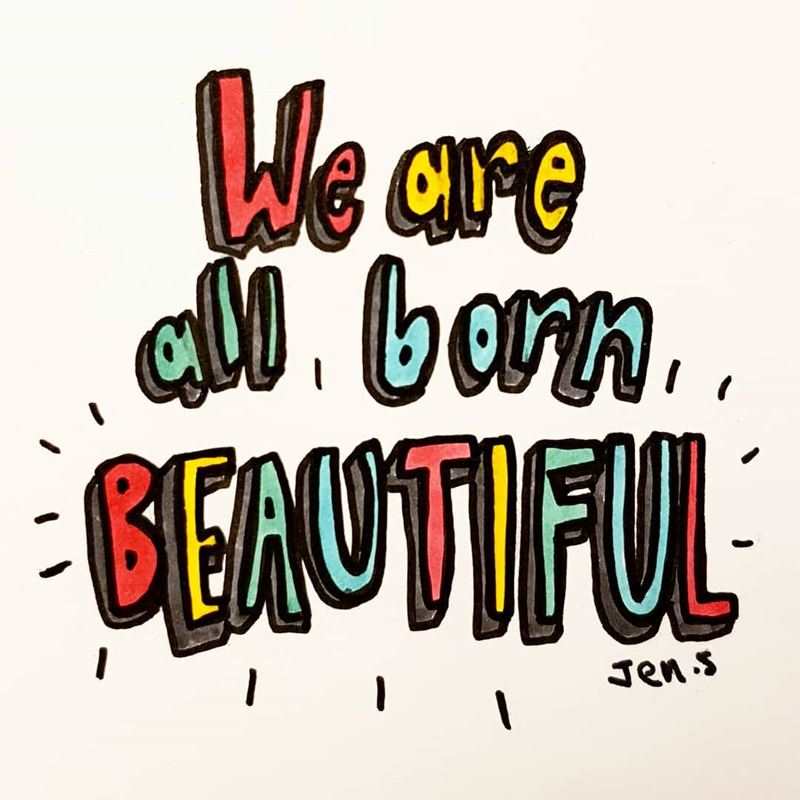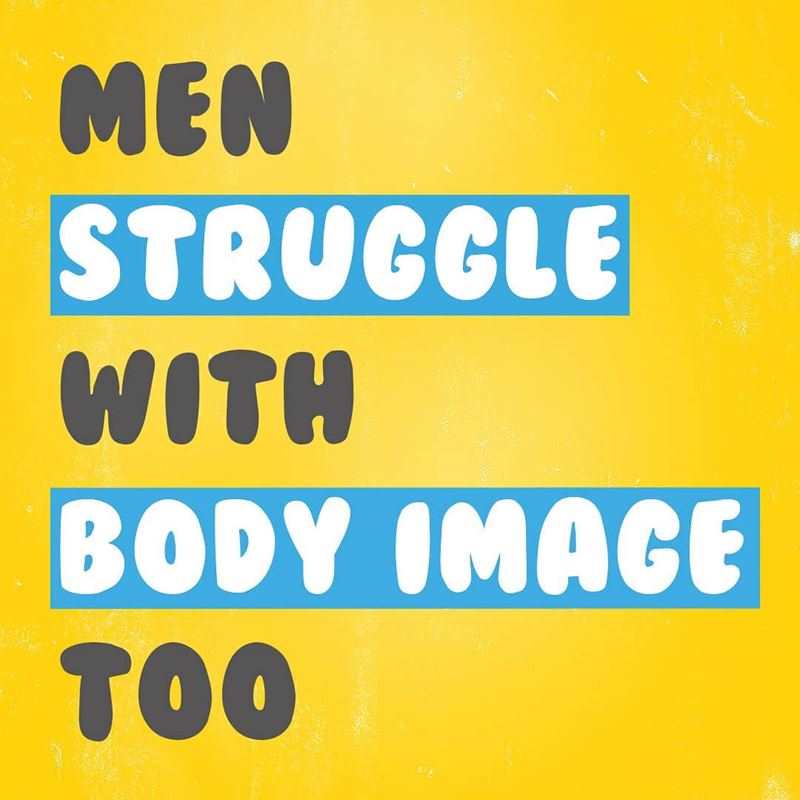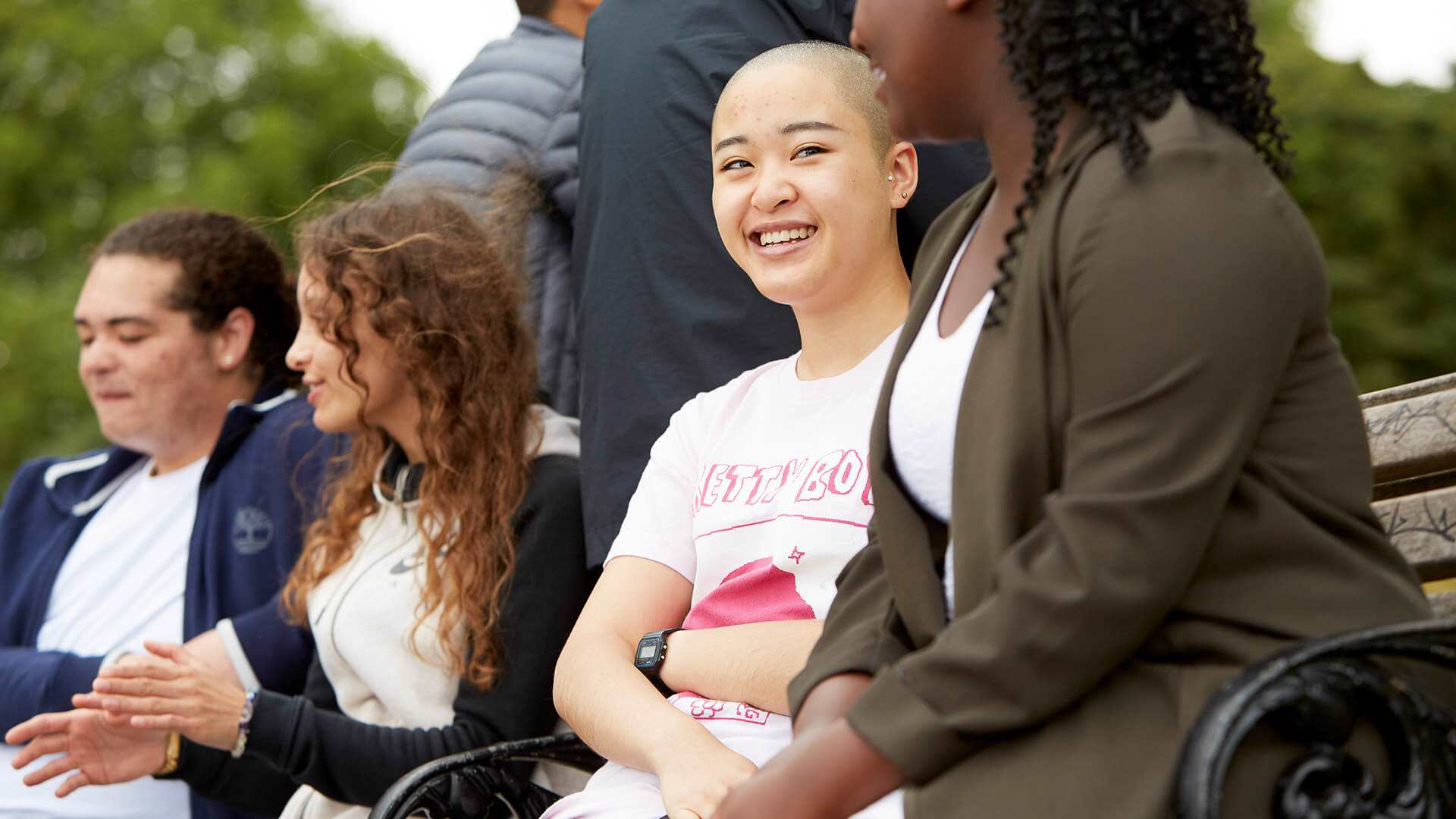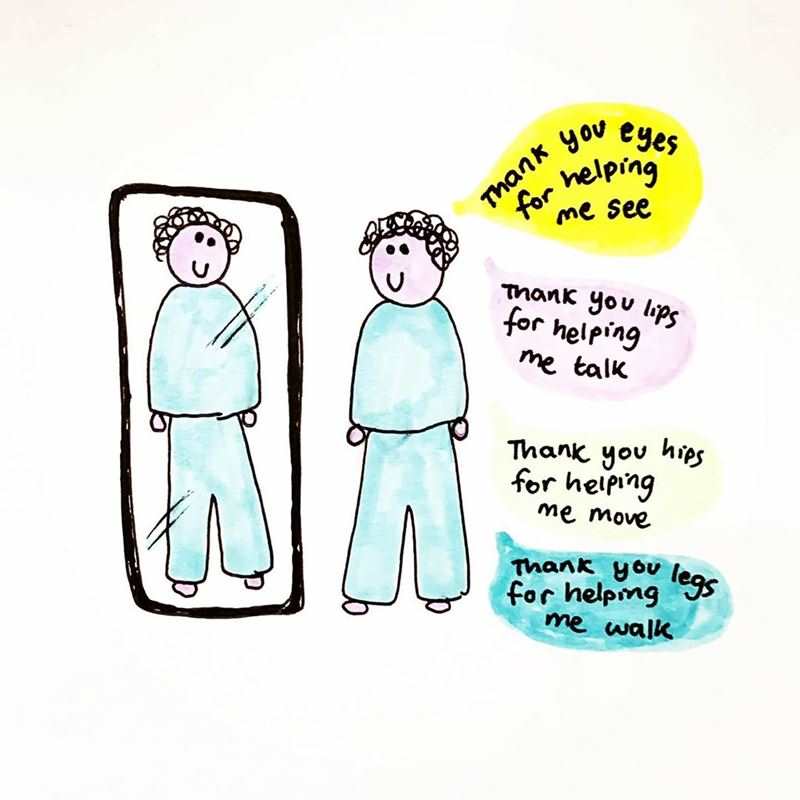Body dysmorphic disorder
Body dysmorphic disorder is when you constantly worry about flaws in your appearance, focus on specific areas of your body and compare yourself a lot to others.
Sometimes when you’re struggling with your body image, you might change your eating habits as this can make you feel like you are in more control of how you look. This can be things like changing what you eat, how much and how often you are eating. If you are finding that your eating habits or relationship with food is taking over your life, you might be struggling with an eating problem.
We all worry about how we look at times during our lives and that’s completely normal. If you are experiencing any of the above, know that there are people who can help you get through this. Things can get better.
